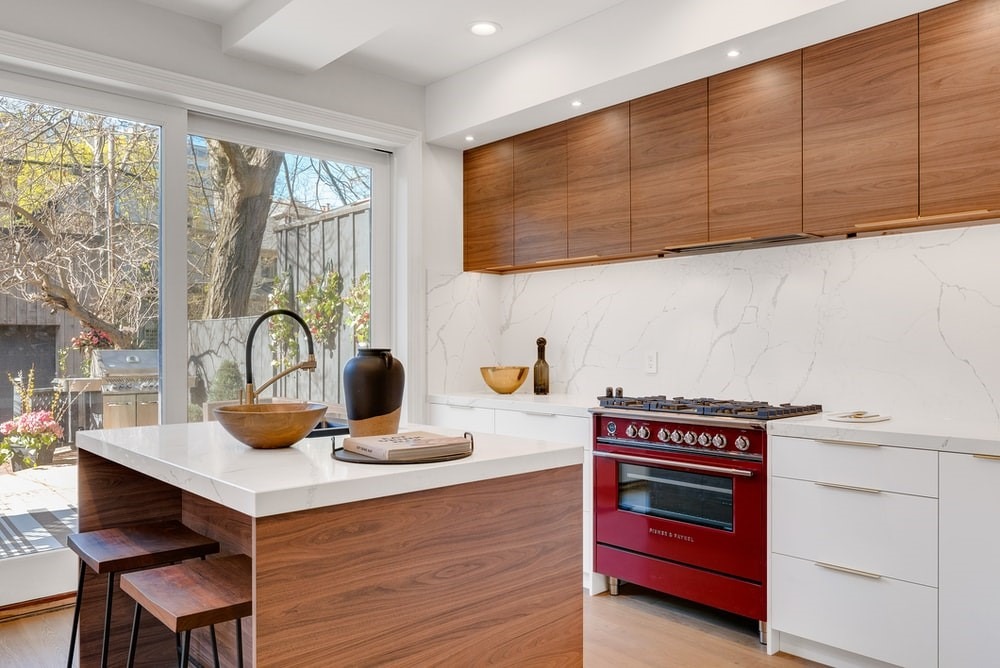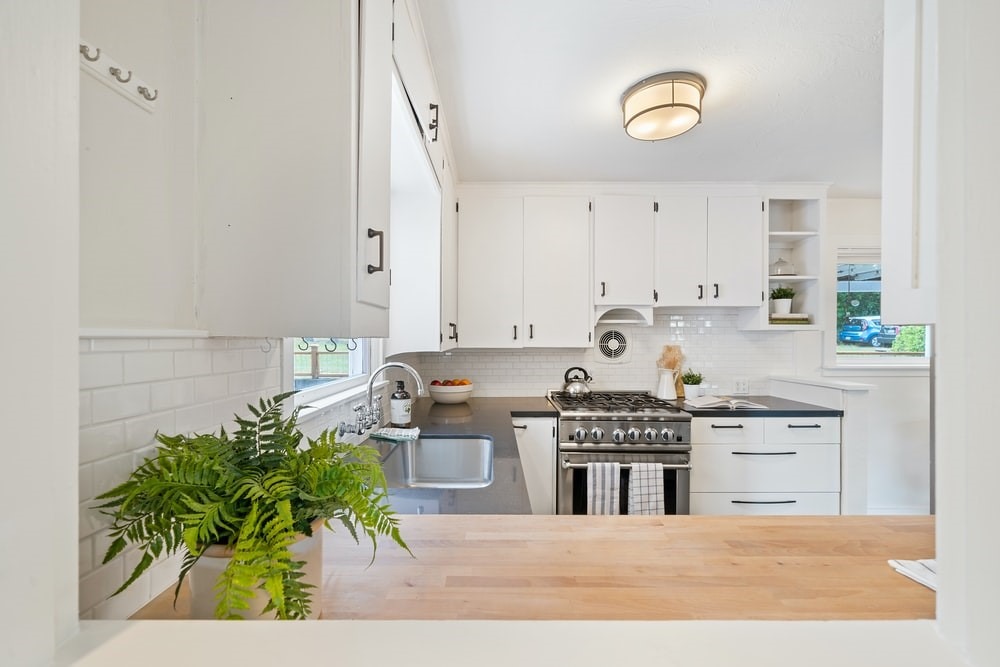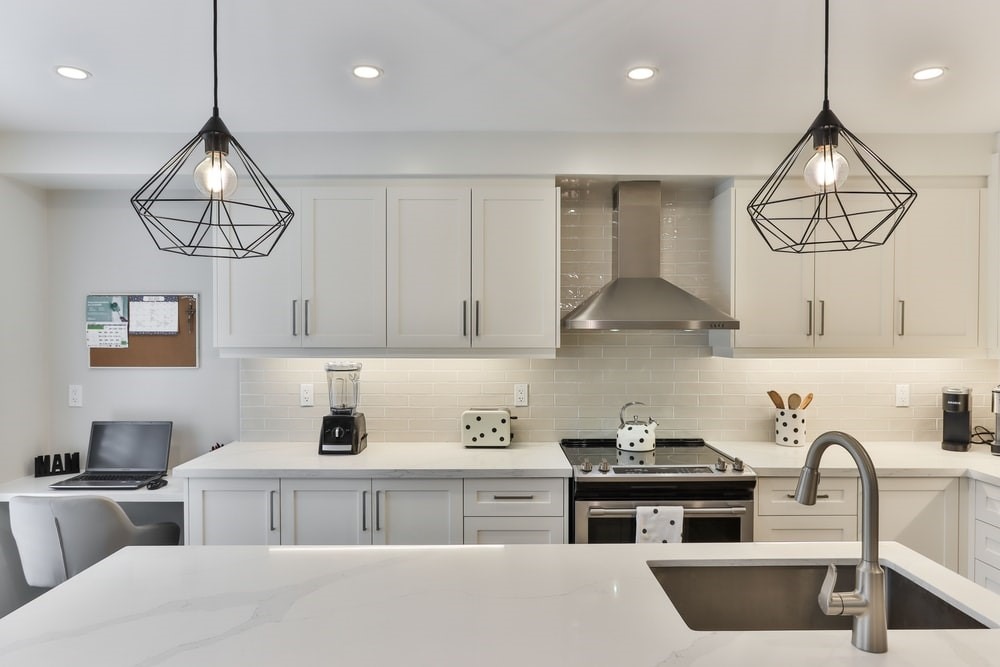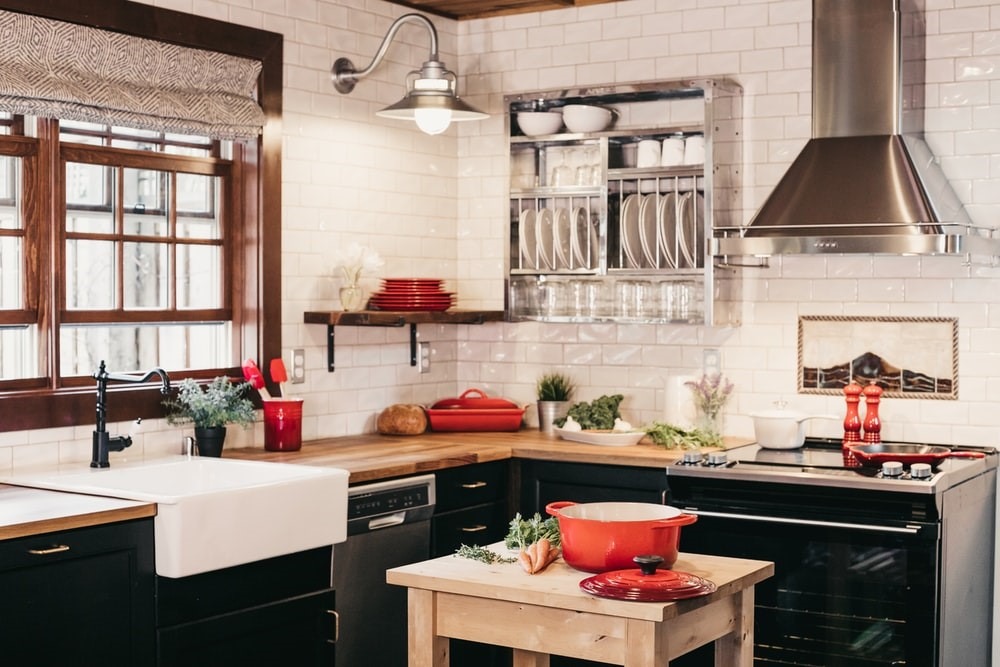Bending, kneeling, lifting, stretching – sounds familiar? What if we tell you, you are not in the gym working on that beach body but are actually in the kitchen bending and keeling to carry heavy utensils; stretching to take the pickle jar from that top-corner shelf.
Having fun?
We imagine not!
Thankfully, with the science of ergonomics as your friend, you can forget all the heavy lifting and enjoy your time in the kitchen.

Ergonomics or ‘work laws’ is the art of designing the workplace keeping the limitations and abilities of workers in mind. This method helps in incorporating design changes leading to an overall improvement in usage, ease and functionality. It is the foundation stone of every great design and designers swear by these principles and adopt them in creating those dreamy kitchens. Every corner of your home can benefit with the application of ergonomics.
An ergonomic space results in a stress-free environment, optimum utilisation of time and efforts and enhanced comfort and safety. It also
- Reduces fatigue
- Helps reduce unwanted and unnecessary repeated actions
- Helps direct your efforts towards cooking
- Makes procuring and sourcing of items easier and less strenuous
- Enhances safety, thereby reducing the chances of accident
In this article we share a few simple tips which would help you in designing a kitchen based on the principles of ergonomics.
- Customize
There are many options of layouts available for kitchens – open, one-wall, L-shaped, U-shaped etc. Kitchens can be built to suit the customer’s ideas. Counter tops, position and height of shelves or cabinets, depth of the sink can be modified to suit your requirements, be it body size or cooking practices.

Whether a person is tall or short, left-handed or right, the kitchen fittings can be customized to provide more comfort and ease to the primary user.
After all, why should you force your body to adapt to standard sizes when there is another way around!
- Emphasize on the work-flow
In every kitchen, the primary task is meal preparation, which requires frequent movement between the worktop, refrigerator and sink. One of the oldest time-tested concepts in designing kitchens is The Work Triangle which aims at creating a clear path between these high-movement areas.

The Work Triangle stipulates that
- The food preparation area, cleaning area and food storage areas must be laid in a triangular pattern.
- The distance between these areas should be minimized and ideally kept between 4-9 feet apart.
- There should be no appliances or cabinets intersecting through the legs of the imaginary triangle. The entire area should be free of obstructions and clutter.
- The three sides put together should not be less than 13 feet, and not exceed 26 feet.
- There should be minimal floor-traffic between the three areas.
Though this concept is age-old, many designers follow it to date. It focusses highly on the convenience aspect of cooking.
- Storage

Storage of utensils, cutlery and crockery becomes one of the biggest challenges in every kitchen. Either the shelves are way too high, forcing the user to be on their toes. Or, they require too much of bending and lifting from the ground level. Over time, these lead to stress, aches and fatigue.
With well-organised cabinets and pull-out drawers, you can easily access even low base units without running the risk of injury and make optimum use of the space in the kitchen.
- Opt for drawers of various sizes with sectional partitions / organizers placed for storing utensils. Drawers are better for storing utensils than cabinets.
- Cookware, crockery and cutlery should be stored in organizers to make the area clutter-free and better organized.
- Pull-out drawers make one’s tasks easier, putting less strain on the back and knees.
- Corner spaces can be put to better use by using modular accessories like Lazy Susans, carousels etc.
- Spices and condiments should be placed in shelves closer to the stove / cooking area.
- Bottle pull-outs are the perfect solution to store oil bottles, sauces etc.
- Consumables should be stored in single layer cabinets, with clear visibility so undue time is not spent in searching for them.
- Arranging items according to the frequency of usage reduces time and efforts. Frequently used items should be closer to the countertop so that they are easily accessible.
- Lighting

Lighting is an essential element in every kitchen. No one would like to work in a dark, poorly lit kitchen. A well-lit kitchen immediately is cheery and welcoming, not just to the user but to all.
Overall general lighting should be bright and can be achieved by using ceiling mounted lights.
There should be sufficient task lighting above the countertop for food preparation and cooking.
Apart from this task lighting, a kitchen should also have ambient lighting which can be dimmed or brightened as per requirement. Using LED strips under cabinets or running over the worktops enhances the aesthetic appeal.

A few general guidelines which would help in adding the finishing touches to your ergonomic kitchen –
If the kitchen has an entry door, it should not be a hindrance and should not interfere with the safe operation of any appliances.
If there is only one sink in the kitchen, it should be placed keeping in mind the concept of work triangle. Placing it next to or across from the stove top and fridge would be ideal.
The kitchen should have a good ventilation system, either an exhaust fan or a chimney above the stove top.
Storage for cleaning supplies should be provided under the sink so as to utilize the space and reduce unwanted movement.
Big or small, modern or classic, with good kitchen ergonomics every kind of kitchen can be transformed into a meaningful and comfortable working place.
Talk to us and our team of designers will be more than happy to help you in getting your ideal kitchen.
